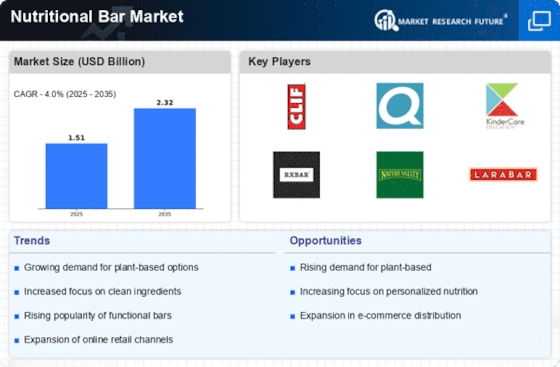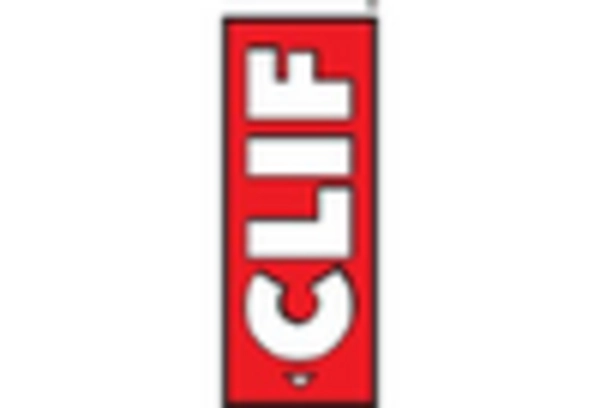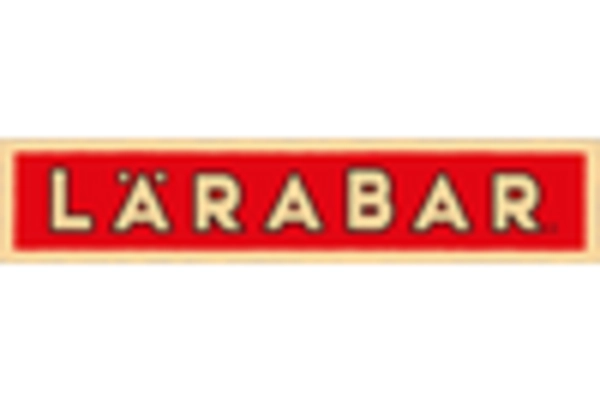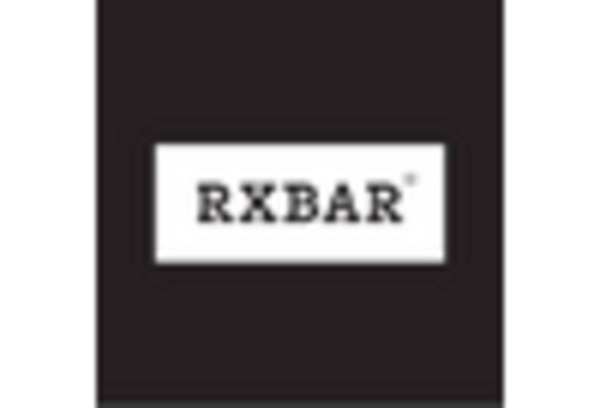Market Share
Nutritional Bar Market Share Analysis
In the highly competitive landscape of the Nutritional Bar Market, companies employ various market share positioning strategies to carve out their niche and gain a competitive edge. One prevalent strategy is differentiation, where brands emphasize unique features, ingredients, or nutritional benefits to distinguish their products from others in the market. For instance, some companies focus on offering bars with organic ingredients, catering to health-conscious consumers who prioritize natural and sustainable options. Another effective market share positioning strategy is targeting specific consumer segments. Companies analyze market trends and demographics to identify niche markets with distinct preferences or dietary needs. This approach allows them to tailor their nutritional bars to meet the specific demands of particular consumer groups, such as athletes, vegans, or individuals with dietary restrictions. By aligning product offerings with the preferences of a target audience, companies can establish a loyal customer base and strengthen their market position. Price positioning is also a crucial factor in the Nutritional Bar Market. Some brands adopt a cost leadership strategy, aiming to provide high-quality nutritional bars at competitive prices. This appeals to price-sensitive consumers who seek value for money without compromising on product quality. On the other hand, premium pricing strategies target consumers willing to pay a premium for perceived higher quality or exclusive ingredients. By strategically setting prices based on perceived value, companies can influence consumer perceptions and attract a specific market segment. Innovation plays a pivotal role in market share positioning within the Nutritional Bar Market. Companies invest in research and development to create innovative products that stand out in a crowded market. This can involve introducing new flavors, incorporating trendy superfoods, or developing bars with unique textures. By staying at the forefront of innovation, companies not only attract new customers but also retain existing ones by offering a continuous stream of novel and exciting products. Distribution channels also contribute significantly to market share positioning. Companies strategically choose where and how they make their products available to consumers. Some may opt for widespread distribution through supermarkets and convenience stores, aiming for broad market reach. Others may focus on exclusive distribution through specialty health food stores or online platforms, targeting a more discerning and health-conscious customer base. The choice of distribution channels influences accessibility, visibility, and perceived brand image. Moreover, effective marketing and branding strategies play a pivotal role in shaping market share positioning in the Nutritional Bar Market. Brands leverage digital marketing, social media, and influencers to create a strong brand presence and connect with their target audience. Engaging storytelling, highlighting the brand's values, and emphasizing the health benefits of their nutritional bars contribute to building a positive brand image and fostering customer loyalty.


















Leave a Comment